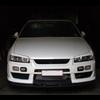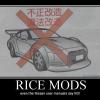What is pinging?
Announcements
-
Similar Content
-
Latest Posts
-
I was booted from facebook group, Infiniti Owners Australia.. wow
-
By Dose Pipe Sutututu · Posted
Just run them at 4 bar to give you 1650cc of spray, done. -
New euro in the house for the wifey. Had to make sure it was good enough that I wouldn't mind driving it when needed. Introducing the 2021 JCW flamin mongrelryman. B48 2.0T 225kw 450nm 8spd AWD 0-100 in 5.1. 1/4 mile in the mid to high 13's. Not bad. It's a little animal on take off and zippy AF around town. She loves the thing and secretly so do I. Just got to pray to BMW Jesus that it doesn't do too many BMW things. Previous owner looked after it like a newborn. It's, I mean was absolutely unmarked and spotless. 360mm factory rotors with cooling ducts. Wonder if they'll stand up to track abuse...







Recommended Posts
Create an account or sign in to comment
You need to be a member in order to leave a comment
Create an account
Sign up for a new account in our community. It's easy!
Register a new accountSign in
Already have an account? Sign in here.
Sign In Now